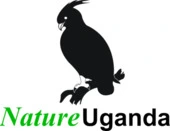Empowering the Next Generation: Herpetological Training commences

With support from JRS Biodiversity Foundation, NatureUganda is training students from several Ugandan Universities and assistants from NatureUganda Branches from different regions of Uganda, in herpetology identification and data collection methods. Herpetology is the study of amphibians and reptiles. With the aim of increasing the number of trained experts and herpetologists in Uganda, this program will shape the future of amphibian and reptile research and conservation in the country and increase information or science-based decision-making.
It is estimated that Uganda is home to 84 amphibians and 178 reptiles including 2 endemics of each according to IUCN, yet the number of trained experts in this field is limited to a handful of individuals. Recognizing this gap, NatureUganda has set out to train 10 students at the Masters of Science level, equipping them with the knowledge and skills needed to become the next generation of herpetology experts. Students have been selected from Islamic University, Busitema University, Gulu University and Mbarara University.
In addition, the program aims to trigger a passion for amphibians and reptiles in others who have a keen interest and liking for these creatures. By training at least 20 assistants, the program seeks to create a broader network of individuals equipped with the necessary skills to support herpetology research and conservation efforts. These assistants will play a critical role in data collection and fieldwork to further the understanding of Uganda’s rich herpetofauna. Interested members of the local communities will also be trained so as increase and improve the local understanding and increase awareness for herptiles.
Dr. Mathias Behangana, a Herpetologist and Principal Investigator for this project is leading the training program. The program will also cover other topics such as taxonomy, species identification, fieldwork techniques and data analysis providing a holistic understanding of herpetology.
The program will establish partnerships with local universities and research institutions, foster collaboration and knowledge sharing, thus creating a strong network of herpetologists who can collectively contribute to the conservation of amphibians and reptiles in Uganda.
All records mobilized will help in evaluating biodiversity richness in the project areas, map and promote Key Biodiversity Areas (KBAs) or Key Herpetofauna Areas (KHAs).
Related Posts
Recent Posts
Forests and wetlands degradation and it’s impacts on herpetofauna and other wildlife
Embracing Regenerative Tourism as the next step in Sustainable Tourism
Engaging Site-based Communities in Research and Conservation: The Locally-based Monitoring Initiative
All Categories
- Conservation and Development (27)
- Eco-tourism (3)
- Education and Awareness (10)
- Forests (7)
- Habitats (9)
- Nature walk (2)
- People (5)
- Projects (9)
- Public dialogue (6)
- Research and Monitoring (18)
- Sites (4)
- Species (10)
- Wetlands (12)
- Wildlife (6)




